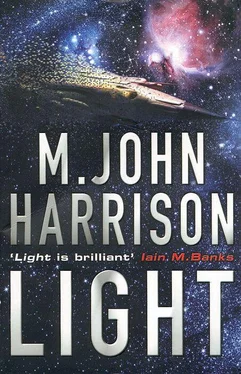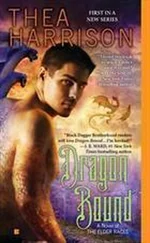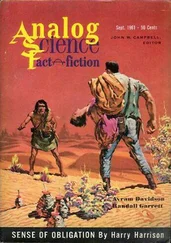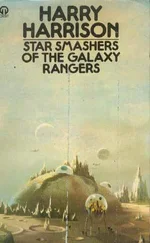Central London, 3 a.m.
Fractals spilled across icy blue displays, developing into something that resembled the jerky frame-by-frame slow motion of a much earlier medium. Brian Tate rubbed his eyes and stared. Behind him, the suite was dark. It smelled of junk food, cold coffee. The male cat was sniffing about in a litter of discarded polystyrene cups and burger cartons around Tate's feet. The female sat quietly on his shoulder, watching with a kind of companionable complicity the mathematical monster unspooling across the screens in front of them. Every so often she dabbed out a paw, mewing impatiently, as if to draw Tate's attention to something he had missed. She knew where the action was. Tate took off his glasses and put them on the desk in front of him. Even at these speeds there was nothing to see.
Or almost nothing. At Los Alamos, bored-though he would never have admitted it to anyone-by the constant talk about physics and money, he had spent most of his free time in his room, switching restlessly from TV channel to TV channel with the sound turned down. This led him to think about choice. The moment of choice, he thought, could be located very exactly as one image flickered, broke and was replaced by the next. If you levered things apart, if you could get into the exact moment of transition, what would you find? Entertaining himself with the fantasy of an unknown station- something more watchable than reruns of Buffy the Vampire Slayer- transmitting into the gap, into the moment of choice, he had tried to record a series of channel changes on the VCR and play them back in stop-frame. This had proved to be impossible.
He reached back to stroke the cat's ears. She evaded him, jumped down on to the floor, where she hissed at the male until he retreated under Tate's chair.
Tate, meanwhile, picked up the telephone and tried Kearney's home number. There was no answer.
He left another message.
When Uncle Zip heard Seria Mau say the words 'Dr Haends', he sat perfectly still for a fraction of a second. Then he shrugged. 'You should bring it back,' he repeated. This was his idea of an apology. 'I'll be generous to you.'
'Uncle Zip? Do you know a Dr Haends?'
'I never heard of him,' said Uncle Zip quickly, 'and I know every tailor from here to the Core.'
'Do you think it's military?'
'No.'
'Do you think it's modern?'
'No.'
'So what can I do?'
Uncle Zip sighed. 'I already told you: bring it back to me.'
Seria Mau felt reluctant. She felt as if some other avenue should open up for her at this point. She said:
'You've lost your credibility here-'
Uncle Zip threw up his hands and laughed.
'-and I want to meet this guy, this Billy Anker.'
'I should know better than to argue with a fetch!' He stared at her, still amused but suddenly alert. 'First off, Billy Anker is not known to be a guy with a refund policy,' he said quietly. 'In addition, he is my guy, not yours. Thirdly, he is not a cutter. You understand? What do you think you'd get from him, young woman, that you won't get from me?'
'I don't know, Uncle. Something. I don't know what. But you aren't telling me what you know. And I have to start somewhere.'
He stared at her a moment longer, and she could see him think.
Then he said, in a throwaway voice: 'OK.'
'I've got money.'
'I don't want money for this,' said Uncle Zip. 'When I think about it this could work out for all of us. Even Billy.' He smiled to himself. 'I'll give you Billy as a favour. Maybe you'll do me a favour sometime down the line.' He waved one hand dismissively. 'It won't be much, no problem.'
'I'd rather pay.'
Uncle Zip got gracefully to his feet.
'Don't look a gift-horse in the mouth,' he advised her flatly. 'Take my deal, I'll let you in on Billy's whereabouts. Maybe also his present ambitions.'
'I'll think about it.'
'Hey, don't think too long.'
While he sat, he had balanced his accordion on his powerful thighs. Now he took it up, and got the straps back over his shoulders, and squeezed out a long introductory chord. 'What's money anyway?' he said. 'Money isn't everything. I go down to the Core, it's five hundred light years of money. Money all the way. They got entire planetary systems designated FTZs. They got women with two days' training, sweating out lousy little do-it-yourself splicing kits, what for? So their kids can eat. Oh, and so Earth kids can get a legal patch at a factor five mark-up. Break the seal on the code and give themselves metabolic collapse on a Saturday night. You know what those corporates say?'
'What do they say, Uncle Zip?'
'They say, "Money has no morality," in these voices make you want to puke. They're proud of it.'
It was 2 a.m. in Carmody, and the Kefahuchi Tract glittered across the sky as bright as Uncle Zip's accordion. He played another chord, and then a series of brash arpeggios that rippled one into the next. He puffed up his cheeks and began to stamp his feet. One by one, his audience slipped back into the parlour, giving weak apologetic grins to Seria Mau's fetch. It was as if they had been waiting somewhere down Henry Street, some bar not far down, for the music to start up again. They brought bottles in brown bags, and this time one or two shy women were with them, casting glances out of the side of their eyes at Uncle Zip then looking quickly away again. Seria Mau listened to another song, then let herself fade into brown smoke.
On the face of it, Uncle Zip was solid. He dealt with the passing trade: cultivars for pleasure, sentient tattoos, also any kind of superstitious hitch and splice, like ensuring your firstborn gets the luck gene of Elvis. Every afternoon his shop was full of nervous mothers-to-be, designing their baby to have genius. 'Everybody wants to be rich,' he would complain. 'I made a million geniuses. Also, everybody wants to be Buddy Holly, Barbra Streisaid, Shakespeare. Let me tell you: no one knows what those men looked like.' It was barely illegal. It was all, as he said, a bit of fun. There was only so far he could go. It was the modern equivalent, he said, of a kiss-me-quick hat you bought on Labour Day. Or maybe that old kind of tattoo they had back then. In the lab, though, he cut for anyone. He cut for the military, he cut for the shadow boys. He cut for viral junkies, in for the latest patch to their brain disease of choice. He cut alien DNA. He didn't care what he cut, or who he cut for as long as they could pay.
As for his audience, they were cultivars: every one cloned-even the shy young women in the black tube skirts-from his own stemcells, deep-frozen insurance he took out the day he went to Radio Bay. They were his younger self, before he found his Dig secret, come to worship twice-nightly at the shrine he had made of his success.
Motel Splendido turned, nightside up, beneath the White Cat. From the parking lot, Seria Mau stared down. Carmody appeared like a sticky, abbreviated smear of light the colour or extent of which you couldn't be sure, on its island in the curve of the southern ocean. She dawdled her fetch along its magically lighted streets. Downtown was black and gold towers, designer goods in the deserted pastel malls, mute fluorescent light skidding off the precise curves of matt plastic surfaces, the foams of lace and oyster satin. Down by the ocean, transformation dub, saltwater dub, pulsed from the bars, the soundtrack of a human life, with songs like 'Dark Night, Bright Light" and others. Human beings! She could almost smell their excitement at being alive there in the warm black heart of things among the sights. She could almost smell their guilt. What was she looking for? She couldn't say. All she could be sure of was that Uncle Zip's hypocrisy had made her restless.
Читать дальше












